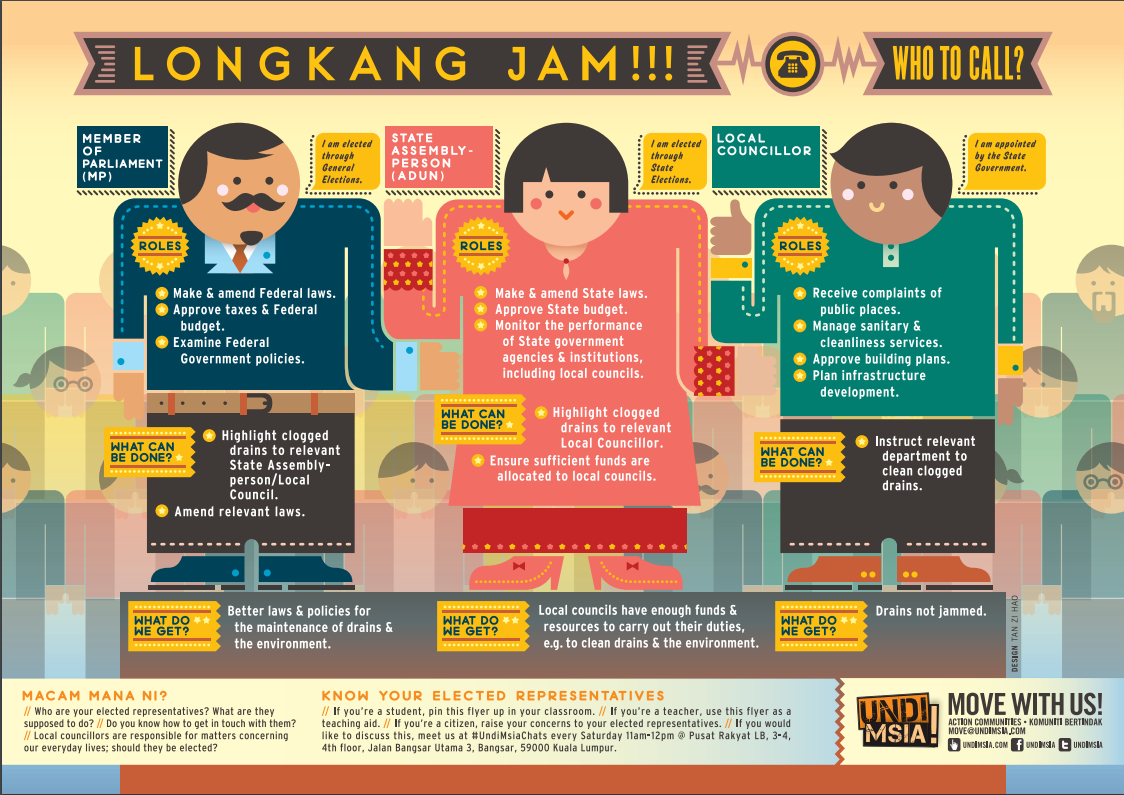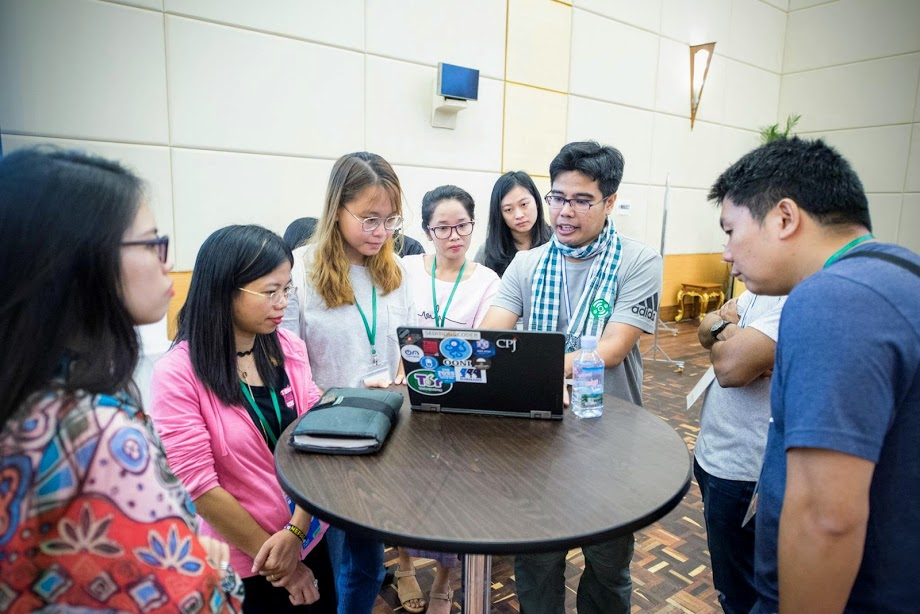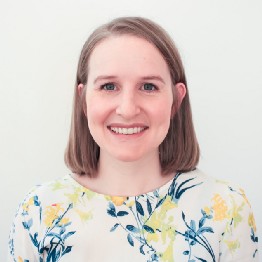Stories of Collaboration: Sinar Project x Local Partners
Words by Grace O'Hara • May 7 2019
Collaboration is a word that gets thrown around a lot in the world of tech, design and impact. But what does it look like and how can it happen? This series seeks to show the many ways our members are working in collaboration, across the world.
For the first story — I chatted with Khairil Yusof from Sinar Project to understand how and why they work with local partners, and to highlight some of the successful collaborations they’ve been involved in.
Why Collaboration?
First off, for context, what is Sinar Project?
Sinar Project is a civic tech initiative that uses open technology and applications to systematically make important information public and more accessible to the Malaysian people.
It aims to improve governance and encourage greater citizen involvement in the public affairs of the nation by making Parliament and Malaysian Government more open, transparent and accountable.
Check out more on their website here: sinarproject.org
How and why does Sinar Project work with partner organisations?
In the context of Malaysia, the civil society space is constrained. It’s a small group of people and organisations working toward many of the same broad goals, but each in a different way.
As much as possible, we check in with what others are up to over WhatsApp, emails and events. With events, it’s usually the same crowd who show up for seemingly different things (say, migrant worker rights versus freedom of association) — there’s a lot of crossover.
Because there is lack of resources across the board, informal collaboration emerges where we align to work towards common goals without any funding or legal agreements. The downside is that while the relationships last, the collaboration projects are often fleeting. But even staying in the loop of what you’re working on to avoid duplication is important.
Collaboration in Action
Sinar Project approaches collaboration by working on common goals, and contributing expertise and strengths of each partner. Here are a few ways that’s taken ideas to reality.
Case Study One: Parliamentary Openness
Sinar Project teamed up with the Malaysian Centre for Constitutionalism and Human Rights (MCCHR) to work on a project called UnsiMsia — which aimed to build and strengthen youth activist communities.
- MCCHR was providing spaces for activists to come together, while also collecting information on MPs to share with their community. The problem was that there was no online channels to share this data.
- Through informal meet ups and events, Sinar Project learned more about the UnsiMsia project and volunteered to create a first iteration of a site that would capture the data: https://reps.sinarproject.org/
- The project got attention from local media and resulted in a range of other educational resources being created — like the one below.
- For the second iteration of MyMP, Sinar Project learned from mistakes of the past, and adopted mySociety’s Popit platform and adopted Popolo-spec open standards to have an API and open data approach for this long term issue — showing the power of tapping into what’s already out there!

Case Study Two: Government Transparency
In this example, we talk about what it’s like to be part of a coalition — namely, the Government, Integrity, Accountability, Transparency (GIAT) Coalition.
- This was the first time Sinar Project was involved in a formal coalition, which includes partners such as Transparency International, Center to Combat Corruption & Cronyism (C4 Center), IDEAS Malaysia.
- Collaboration was around a set of common goals, or Terms of Reference (example of the draft here).
- The main ways we worked together involved monthly or bi-monthly physical meetings, and a WhatsApp group channel which encouraged members to share and collaborate on new initiatives.
- More senior partner organisations used the coalition to drive public policy, which gave us and therefore civic tech concerns a stronger platform in forums and meetings with government and policy makers.
- We also collectively provided technical inputs into policy recommendations, resulting in inclusion of digital and tech policy requirements and recommendations.
- The result? Before our latest elections (14th), as a coalition we pushed recommendations on open data and open government to both political sides and it was included in manifesto of winning government!
Pakatan Harapan Coalition Manifesto/Election Promise 60:
The framework of cooperation between government and civil society based on international standards will also be adapted, particularly those relating to transparency and accountability, such as the Open Contracting Partnership, the Open Budget Initiative, the appropriate standards from the OECD and the World Bank, and others.
Case Study Three: Freedom of Expression
A very new exploration for us in collaboration has been with rights groups working on freedom of expression and media freedom. This has also been sparked by the new Malaysian government collaborating with civil society organisations through “clusters”.
- For Sinar Project, their niche is in feedback and concerns when it comes to digital and online issues.
- Using their technical skills to monitor and test website censorship (and with a hint from a local lawyer) the team was able to quickly check blocked sites and do quick write up for our cluster and the public, on affected sites and what laws are being applied.
- Have a read below, or watch this space for more on this!

Lessons Learned
When has collaboration been tough?
Civic tech organisations use communication and collaboration tools that are very different — we work online more than face to face meetings and through various platforms and forums:
- Slack for communications
- Google Docs
- Github
- Trello
Our international networks and conferences are different too — like Code for All, Open Government Partnership, Poplus, Open Parliament Network, Open Contracting, Open Data for Development Network, Internet Governance Forum.
Finally our open source/free software roots means a strong culture of sharing and openness for everything we do. This makes it naturally easy for us to collaborate, from licensing to platforms.
But it can also be problematic, when it comes to collaborating with another organisation that already has tech usually from commercial or in-house developer. When their work is not open sourced, they’re not familiar with collaborative tech tools like GitHub, it becomes impossible for us to collaborate for tech. A few collaborations have fallen through, because the other party was not willing to open source or collaborate openly because they wanted to keep the tech proprietary for possible monetization in future.
What advice would you give to others?
- Identify common organizational goals/outcomes — this sets mapping of what each partner brings and leads to long term collaborations that go beyond projects
- Identify value that you bring to the table — for civic tech organisations like Sinar, it’s our knowledge of tech and digital rights issues as well as IT project management
- Spread culture of what makes open source/open content communities work to others — working and collaborating and sharing openly, crediting all contributors , working with upstream global communities and best practices such as code of conduct rules

That’s all for this story, but keep your eyes out for more like this soon. A massive thank you to Khairil Yusof for sharing his time and experience.
If you have further questions on any of the projects highlighted, join us on the Code for All Slack to continue the conversation or reach out via the Sinar Project website.



